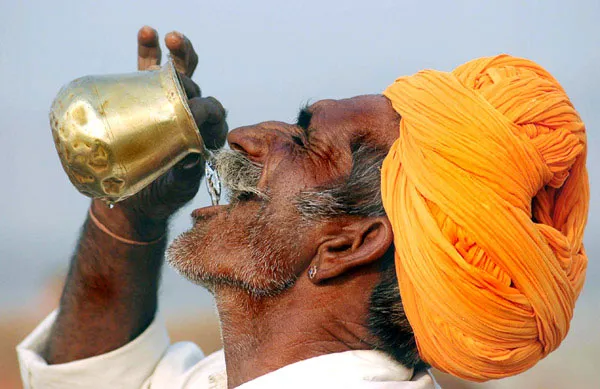Hello peeps! @ailindigo here :)
This is the 7th week of Untranslatable Words and for the first time we're talking about a word suggested by you the readers :D It's great to have this kind of participation! I encourage you all guys that if you'd like to suggest any word please feel free to do it! Thank you very much @barge for this word! We're going back to India one more time!
This week's word is the Hindi: Jootha

Jootha
When @barge mentioned this word I had many flashbacks from the past, many memories of my friends and me in high school avoiding the rest from drinking from our water bottles. Besides this, it also left me thinking about this culture of cleaness and maybe something else, whick kind of intesified after reading an interesting article about this word.
Jootha refers to an object that has been soiled by saliva and thus it's not suitable for somebody else to eat from. *
This word refers to any food, bottle, or object that has been polluted by someone else's saliva, therefore not consumable. This seems to be a strict practice in India that not everyone is proud to have and that surprises people from other countries. It's so stric that a simple touch with the hand (even if it's clean) is enough to not eat the food.
Another thing the text highlights is that "mouth and hands are "impure" but only "pure" substances may be put into the "impure" cavity" which is pretty intriguing and even triggering. The text also states that this word reflects the realities of social hierarchy and subordination.
India has a very marked culture of subordination, where a married woman is exptected to eat from the soiled plate in which her husband just ate, as a way to acknowledge his superiority; so, it's not about something being polluted but about subordination, and humiliation perhaps.

BeSlowYogaStudio
How come a man's food is untouchable for his woman but a woman's food might be touched even if in both cases there's no real pollution in the food? Mukul Dube, the author of this article, says the dirty is not on the plate but on the mind.
It's also said that this word refers to food that has been tasted by someone else without permission, the word states that the food is not in its original intended state. Though, whatever the core meaning and implications of this word might be, in India this is considered as a taboo. *
Even though on this side of the world we don't consider it a taboo, it's not that we're sharing our bottles of water with everybody, but more likely our meal or plate. Every time I remembe those days where we were mostly joking about not letting everyone drink water from out bottles, or trying to not make a mess while trying to drink without touching the bottle with the lips, I can't help but laugh for how obssesed we were with that; after all I think we just didn't want to get the flu!
What do you think? Is Jootha a common or not so common thing where you live? Is it all about real cleaness or subordination? Please feel free to tell me what you think in the comments! As well as suggesting a new word if you wish so!
Thank you very much for passing by! :)
Previous Untranslatable Words:
#1: Torschlusspanik
#2: Mono no aware
#3: Rasāsvāda
#4: Cavoli riscaldati
#5: Nefelibata
#6: Sturmfrei
This content is part of a new series to get more people interested on languages and how they, perception and culture are related!
Exclusively for the Hive Cross Culture Community, the community for language exchange or cross-cultural purposes.
If you'd like to be part of the discussion don't hesitate to hop into the Hive Language and Culture Exchange Discord server! As well as subscribing to the Hive Cross Culture Community so you don't miss any new word comming ;) We'll be sharing a new Untranslatable Word each week!

